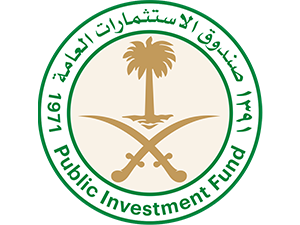Effective water management in agriculture is crucial for maximising crop yields, ensuring food security, and maintaining ecosystem health. It helps optimise water usage and reduce waste and pollution.
Consulting Manager
Expertise
Without water, farmers would be unable to grow crops or maintain livestock. A staggering 70% of all available freshwater is used for agriculture. Despite this, access to this critical resource can vary greatly depending on location and environmental conditions. While many farms rely on natural processes such as groundwater and rainfall, others depend on complex irrigation systems to satisfy water demands. Water scarcity is a major constraint, particularly in arid regions, and with climate change threatening to exacerbate the issue, the need for more efficient water management practices and technologies is urgent.
To address this challenge, farmers need to adopt technologies and strategies to optimise water usage, minimise wastewater, and improve irrigation. These measures are crucial for maintaining safe and secure food systems and ensuring agricultural sustainability in the face of growing environmental challenges and a changing global climate.
At Farrelly Mitchell, we support the implementation of efficient and sustainable water conservation strategies to mitigate waste and manage water scarcity
Watch Video ↗At Farrelly Mitchell, our water management consultants recognise the importance of water as a resource and the impact that scarcity has on agricultural productivity. We offer in-depth expertise and experience in the areas of water management, water conservation, and irrigation. For many farmers, identifying and implementing suitable water management strategies can be challenging. Understanding the local environment, crop requirements, and available technologies is crucial. We specialise in bridging this knowledge gap.
Our experts are well-versed on key management strategies such as crop rotation, conservation tillage, cover cropping, drip irrigation, water storage, and water treatment. We work closely with farmers and agribusinesses to develop and implement efficient water management systems that optimise water use, enhance crop yields, and reduce environmental impact. We also work with governments and NGO’s to provide training and educational programs that support sustainable water management practices in agricultural communities.
Stay up to date with the latest agribusiness publications.
Explore our FAQ for answers to common agribusiness queries. Can’t find your question? Contact our expert team for tailored assistance.
Effective water management in agriculture is crucial for maximising crop yields, ensuring food security, and maintaining ecosystem health. It helps optimise water usage and reduce waste and pollution.
Agriculture is a major consumer of freshwater resources, often accounting for the largest share of water usage in many regions. Intensive farming practices can lead to water scarcity, especially in arid areas, by depleting rivers, lakes, and aquifers.
Water scarcity restricts the availability of water for irrigation, leading to reduced crop yields, limited agricultural productivity, and increased vulnerability to droughts. This scarcity can also escalate costs for farmers, impacting the economic viability of agricultural operations.
Agriculture is estimated to use about 70% of the world’s freshwater resources. This percentage can be higher in certain regions, particularly in those where irrigation is a key component of agricultural practices. The exact amount varies based on the type of crops, climatic conditions, and irrigation methods used.
Agribusinesses can conserve water by adopting efficient irrigation methods (e.g., drip or sprinkler systems), using water-saving crop varieties, implementing water recycling, and employing precision water management technologies. These practices support long-term sustainable water resource management.
Whether you are an agribusiness seeking technical and operational improvements, or a government or NGO looking to introduce institutional and infrastructural reform, our experts can provide tailored advice based on current research and proven practices. Contact us today to learn more.







Receive the latest updates from the agribusiness world, including fresh insights and more, directly in your inbox.

Our team are ready to help you on the pathway to achieving your goals in food or agribusiness.